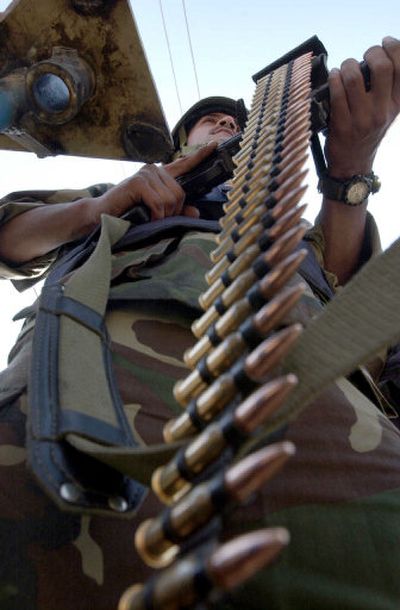Violence resumes as curfew ends

BAGHDAD, Iraq – Fighting erupted in several western Baghdad neighborhoods Friday evening after the expiration of a curfew that had been imposed throughout central Iraq following widespread religious and ethnic killings the day before.
While U.S. and Iraqi leaders continued to call for calm, there was broad uncertainty about the next steps to prevent Iraq from sliding into civil war.
Hours after Prime Minister Ibrahim al-Jaafari said in a televised address that the government had secured religious shrines throughout the country, two rockets struck the tomb of Salman Pak, also known as Salman al-Farisi. Salman Pak was a seventh-century companion of the Prophet Muhammad, and Shiite Muslims revere his tomb.
Although the tomb has far less importance than the Samarra shrine that was bombed Wednesday – touching off the latest round of violence – Friday’s attack raised fears that Shiites would ignore the orders of their religious leader, Grand Ayatollah Ali al-Sistani, to refrain from violence.
The Interior Ministry said it didn’t know the extent of the shrine’s damage because the neighborhood was too dangerous for forces to enter at night.
The U.S. ambassador to Iraq, Zalmay Khalilzad, while acknowledging the dangers, continued to express confidence that Iraq would avert civil war and that the so-far frustrated attempts to form a national-unity government of all ethnic groups would be revived.
“I believe that they do not have a better alternative; Iraqis do not have a better alternative than to form a government of national unity,” he said.
Wednesday’s bombing of the Askariya shrine – one of Shiite Islam’s holiest sites – in Sunni Muslim-dominated Samarra triggered widespread ethnic violence. Sunni religious leaders said that nearly 200 of their mosques had been damaged in retaliatory attacks, and police reported that at least 129 people were killed Thursday.
In an effort to reassure the public that its government was regaining control, al-Jaafari told the nation that his government had crafted a plan to keep Iraq united.
He said the government would raid houses and impose curfews on ethnically mixed neighborhoods that were prone to violence. In an effort to reduce the presence of militias, he forbade residents from carrying weapons in the street.
“The government will strike with an iron hand all those who want to harm you,” he warned.
Despite the curfew in four provinces, including Baghdad, residents walked to mosques for Friday prayers, some of which had armed men standing guard on top. In some instances, residents met in partially destroyed mosques.